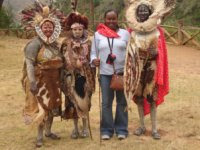 Oh come on!!! I just had to bring this to my blog. I found this picture of Turkish women struggling with burdens on their backs and i said to myself, atumia! (women in Gîkûyû), we have been beaten here.
Oh come on!!! I just had to bring this to my blog. I found this picture of Turkish women struggling with burdens on their backs and i said to myself, atumia! (women in Gîkûyû), we have been beaten here.Turkish women struggle with heavy burdens as they walk to their homes in Sirnak province near the border with Iraq. >>
A while back i came across this page; Freeloading African Women, read Gîkûyû women and i thought we were on top of things when it came to burdens.
¨The burden might be wood, corn kernels, corn meal, vegetables, live animals, water, or cooking oil, but it is bound to be heavy, and it is usually suspended behind their backs, supported by a strap which runs across their foreheads The Gîkûyû females are known to carry up to 70% of body mass with their head bindings: if this does not impress you, feel free to place a barbell or large stone equal to 70% of your weight on top of your head - and then attempt to walk in a relaxed and carefree manner for 10 kilometres or so, as the Gîkûyû women often do!
¨
Away from localization, i found this pic and thought, Waooooh, you mean we have stronger backs out there!
Considering desert margins occupy about 54.4% of the land area of Turkey, the women must be quite ¨freeloading¨
